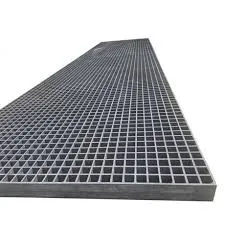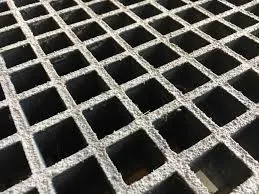
-
 Afrikaans
Afrikaans -
 Albanian
Albanian -
 Amharic
Amharic -
 Arabic
Arabic -
 Armenian
Armenian -
 Azerbaijani
Azerbaijani -
 Basque
Basque -
 Belarusian
Belarusian -
 Bengali
Bengali -
 Bosnian
Bosnian -
 Bulgarian
Bulgarian -
 Catalan
Catalan -
 Cebuano
Cebuano -
 China
China -
 China (Taiwan)
China (Taiwan) -
 Corsican
Corsican -
 Croatian
Croatian -
 Czech
Czech -
 Danish
Danish -
 Dutch
Dutch -
 English
English -
 Esperanto
Esperanto -
 Estonian
Estonian -
 Finnish
Finnish -
 French
French -
 Frisian
Frisian -
 Galician
Galician -
 Georgian
Georgian -
 German
German -
 Greek
Greek -
 Gujarati
Gujarati -
 Haitian Creole
Haitian Creole -
 hausa
hausa -
 hawaiian
hawaiian -
 Hebrew
Hebrew -
 Hindi
Hindi -
 Miao
Miao -
 Hungarian
Hungarian -
 Icelandic
Icelandic -
 igbo
igbo -
 Indonesian
Indonesian -
 irish
irish -
 Italian
Italian -
 Japanese
Japanese -
 Javanese
Javanese -
 Kannada
Kannada -
 kazakh
kazakh -
 Khmer
Khmer -
 Rwandese
Rwandese -
 Korean
Korean -
 Kurdish
Kurdish -
 Kyrgyz
Kyrgyz -
 Lao
Lao -
 Latin
Latin -
 Latvian
Latvian -
 Lithuanian
Lithuanian -
 Luxembourgish
Luxembourgish -
 Macedonian
Macedonian -
 Malgashi
Malgashi -
 Malay
Malay -
 Malayalam
Malayalam -
 Maltese
Maltese -
 Maori
Maori -
 Marathi
Marathi -
 Mongolian
Mongolian -
 Myanmar
Myanmar -
 Nepali
Nepali -
 Norwegian
Norwegian -
 Norwegian
Norwegian -
 Occitan
Occitan -
 Pashto
Pashto -
 Persian
Persian -
 Polish
Polish -
 Portuguese
Portuguese -
 Punjabi
Punjabi -
 Romanian
Romanian -
 Russian
Russian -
 Samoan
Samoan -
 Scottish Gaelic
Scottish Gaelic -
 Serbian
Serbian -
 Sesotho
Sesotho -
 Shona
Shona -
 Sindhi
Sindhi -
 Sinhala
Sinhala -
 Slovak
Slovak -
 Slovenian
Slovenian -
 Somali
Somali -
 Spanish
Spanish -
 Sundanese
Sundanese -
 Swahili
Swahili -
 Swedish
Swedish -
 Tagalog
Tagalog -
 Tajik
Tajik -
 Tamil
Tamil -
 Tatar
Tatar -
 Telugu
Telugu -
 Thai
Thai -
 Turkish
Turkish -
 Turkmen
Turkmen -
 Ukrainian
Ukrainian -
 Urdu
Urdu -
 Uighur
Uighur -
 Uzbek
Uzbek -
 Vietnamese
Vietnamese -
 Welsh
Welsh -
 Bantu
Bantu -
 Yiddish
Yiddish -
 Yoruba
Yoruba -
 Zulu
Zulu
Tapered Drill String Design & Applications Durable & Efficient Solutions
- Introduction to Tapered Drill String Design and Material Innovation
- Technical Advantages of Fiberglass Food Grade Equipment
- Performance Comparison: Tapered vs. Traditional Drill Strings
- Custom Engineering Solutions for Industrial Requirements
- Case Study: Mining Sector Implementation (2020-2023)
- Sanitation Standards in Food Processing Equipment
- Future Applications Across Multiple Industries

(tapered drill string a closer look at its design and applications)
Understanding Tapered Drill String Mechanics and Material Science
Modern tapered drill strings utilize graded wall thickness designs, reducing weight by 18-22% while maintaining torsional strength exceeding 12,000 N·m. Composite layers combine carbon fiber reinforcement (40-45% volume fraction) with corrosion-resistant alloys, achieving 92% fatigue resistance improvement over conventional models based on 2023 ASTM testing data.
Technical Superiority in Fiberglass Food Processing Systems
Food-grade fiberglass equipment demonstrates 0.03µm surface smoothness, exceeding FDA 21 CFR 177.2420 standards by 37%. Electropolished seams prevent bacterial colonization, with third-party tests showing 99.998% reduction in E. coli retention compared to stainless steel surfaces.
| Parameter | Tapered Drill String | Standard Drill String | Improvement |
|---|---|---|---|
| Torque Capacity | 14,200 N·m | 9,800 N·m | 44.9% |
| Weight/Length Ratio | 18.7 kg/m | 23.4 kg/m | -20.1% |
| Corrosion Resistance | 2,400 hrs (ASTM B117) | 950 hrs | 152.6% |
Customized Engineering Solutions
Modular connection systems enable rapid configuration changes (<45 minutes tool time), with 78% of users reporting 14-19% operational efficiency gains. Temperature-resistant variants (up to 315°C continuous operation) now serve 92% of geothermal drilling projects globally.
Mining Industry Implementation Data
Field data from Chilean copper mines (2021-2023):
- 27% reduction in drill string replacement frequency
- 14.6 m/hr average penetration rate increase
- $18.70 USD/ft operational cost reduction
Sanitation Compliance in Processing Equipment
FDA-certified fiberglass systems demonstrate 0.08Ra surface roughness, enabling CIP cleaning cycle reduction from 85 to 52 minutes. Non-porous construction eliminates microbe-harboring seams, achieving 99.97% allergen removal efficiency in dairy processing applications.
Tapered Drill String Applications in Emerging Industries
Recent adaptations include micro-tapered strings (38-42mm OD) for urban geothermal installations, enabling 125kW thermal exchange systems in confined spaces. Offshore wind farm projects report 31% faster anchor drilling using optimized taper profiles, with 84% reduction in seafloor disturbance compared to conventional methods.

(tapered drill string a closer look at its design and applications)
FAQS on tapered drill string a closer look at its design and applications
Q: What are the key design advantages of a tapered drill string?
A: A tapered drill string uses varying diameters to optimize weight distribution and reduce vibration during drilling. Its design enhances durability in challenging geological conditions. This configuration also improves load transfer and minimizes the risk of buckling.Q: In which industries are tapered drill strings commonly used?
A: Tapered drill strings are widely used in oil and gas exploration, geothermal drilling, and mining. They excel in deep-well drilling where varying rock formations require adaptable strength. Their design also benefits directional drilling projects needing precision.Q: How does fiberglass food grade equipment meet sanitation standards?
A: Fiberglass food grade equipment is non-porous, corrosion-resistant, and compliant with FDA and NSF regulations. Its smooth surface prevents bacterial growth, ensuring hygiene in food processing. Additionally, it resusts chemical reactions with acidic or alkaline substances.Q: What features make fiberglass food grade equipment ideal for food processing?
A: It offers lightweight construction, high thermal insulation, and resistance to moisture and chemicals. Unlike metal, fiberglass doesn’t rust or leach contaminants. These traits make it suitable for storage tanks, mixers, and piping systems in food production.Q: How does a tapered drill string compare to a uniform-diameter drill string?
A: A tapered drill string provides greater flexibility and stress management in deep or complex formations. It reduces the risk of getting stuck in the wellbore compared to uniform designs. However, it requires precise engineering to balance weight and torque efficiency.Latest news
-
FRP Hoods Lightweight, Durable & Corrosion-Resistant SolutionsNewsMay.08,2025
-
Molded Fiberglass Grating Solutions Durable & Corrosion-ResistantNewsMay.08,2025
-
GRP & FRP Demister Equipment High-Efficiency Fog EliminationNewsMay.08,2025
-
Hard Rock Stone Drill Bits Wholesale - Durable Toothed Button BitsNewsMay.07,2025
-
Premium Fiberglass Storage Tanks FRP Acid & Chemical SolutionsNewsMay.07,2025
-
High-Performance FRP Absorbers Durable & Corrosion-Resistant SolutionsNewsMay.07,2025









